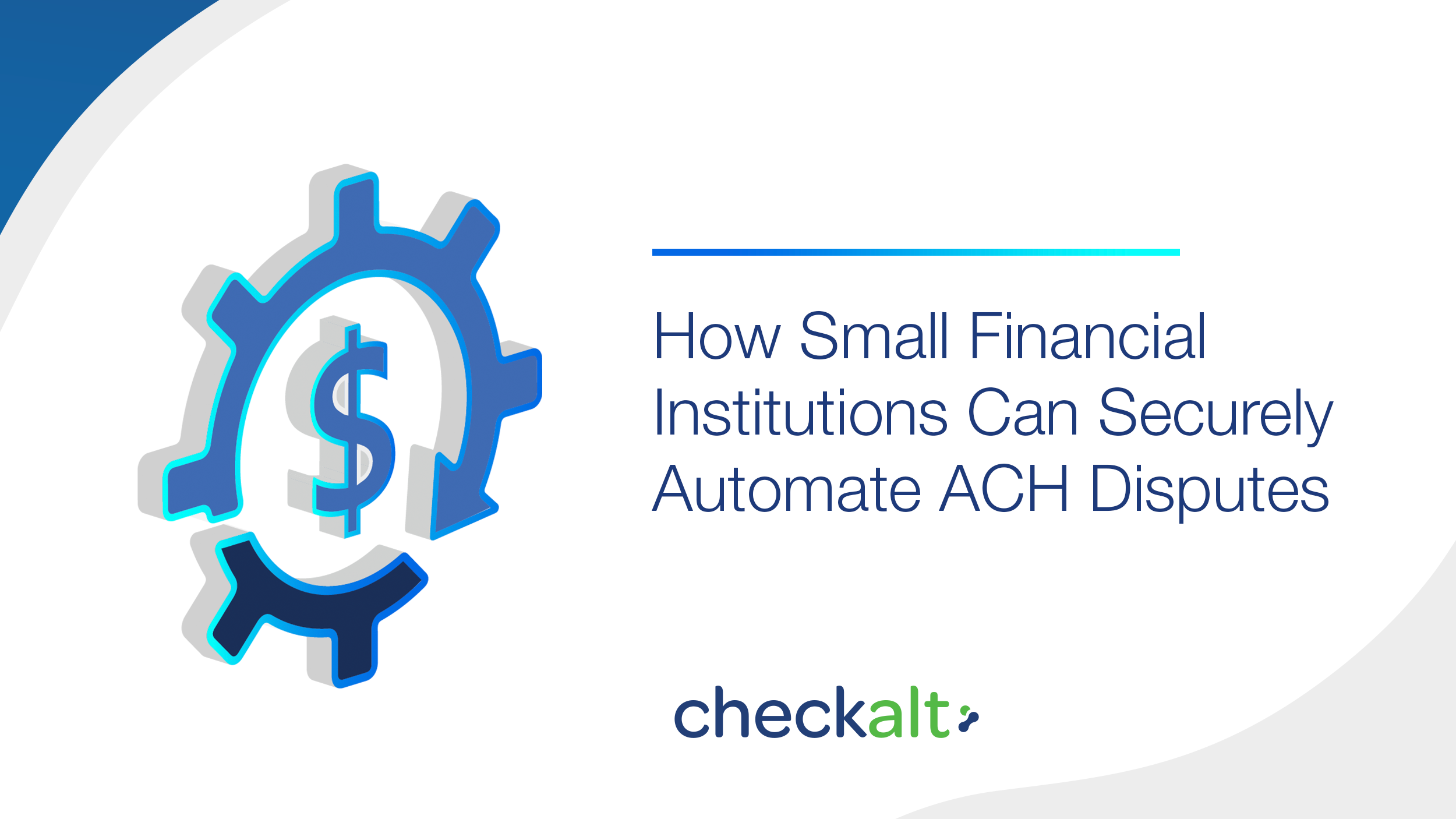Operational Resilience in Banking Starts with Receivables: Managing Risk and Scale with Automation
Operational pressure in banking is no longer confined to any single function. Fraud attempts continue to rise. Staffing gaps across operations and...
4 min read

This is the third in a series of articles on how Payment Case Manager (PCM) securely automates payments disputes. If you have not already read the first two articles, you can read them here and here. Let’s turn our attention to how PCM positively affects small banks and credit unions.
How are small financial institutions (FIs) different than large FIs regarding ACH disputes? There is an obvious disparity in the number of cases. If an FI is not originating ACH, it is possible that they may not ever receive even one ACH dispute. But nearly all FIs have consumer accounts, and most individuals have ACH transactions posting to their accounts. If a customer or member receives ACH debits, it is likely that, at some point, one of those debits will be disputed.
For example: a community bank or credit union is notified by a customer or member that there is a disputed ACH debit on their account. This small institution may not have the breadth of ACH expertise as a larger FI. They may not have a standard form suitable to document the ACH dispute. The ACH transaction identifies who the Originating Depository FI (ODFI) is but there is no national directory that identifies phone numbers to direct a dispute document via fax. Consider this list of challenges a small Receiving Depository FI (RDFI) faces. They have:
The above challenges create frustration and confusion at community banks and credit unions and, in some cases, may limit their motivation to attempt to remediate a dispute on behalf of account holders. Moreover, these frustrations create additional work for the large FIs that are likely the target of disputes as phone calls and duplicate faxes create unnecessary effort to address. The PCM solution was engineered to address this by creating different membership classes to account for the variation in size and scope of the FI participant.
Here are the PCM membership classifications, along with a brief explanation of each:
Each and every U.S. financial institution will have access to PCM in a manner that is cost-effective and appropriate to their need for remediating payment disputes
Why PCM works for Smaller (Basic) FIs:
The operations personnel at most community banks and credit unions wear many hats. They are not able to specialize in just one payment system like ACH—instead they must be generalists, and their tasks daily span the gamut of many payment applications and the related issues of each. Senior management of an FI may not realize how much time can be wasted by an FI that needs to create and deliver an ACH dispute by personnel that are unfamiliar with the process. Consider that the cost of spending 30 minutes on the creation and delivery of a payment dispute could cost the FI $15 to $40 just in people costs. If the ability to create and send a dispute with PCM takes less than 5 minutes and the total cost comes in under $5, there is no logical reason for any FI to not take advantage of this solution. As the institution grows and the need to address more disputes, the cost savings are magnified.
PCM is that rare solution that equally appeals to the largest FIs in the U.S. as well as the smallest banks and credit unions. It allows for tailored feature sets and pricing, making it cost affordable for both Premium and Basic Members. If you want to get additional information on signing up for PCM membership, start with your bankers’ bank or corporate credit union. Or, you can contact us here.
RECENT BLOG POSTS
• Combining Automation and Human-Driven Analysis to Keep More Payments Electronic
• Learning Lockbox Lingo: What Is a Check and List Transaction?

Operational pressure in banking is no longer confined to any single function. Fraud attempts continue to rise. Staffing gaps across operations and...
.png)
How commercial expectations, operations, technology, risk, and financial discipline are converging to reshape receivables in 2026. In this article:

In today's fast-paced environment, organizations and individuals alike still rely on the U.S. Postal Service (USPS) to send and receive important...